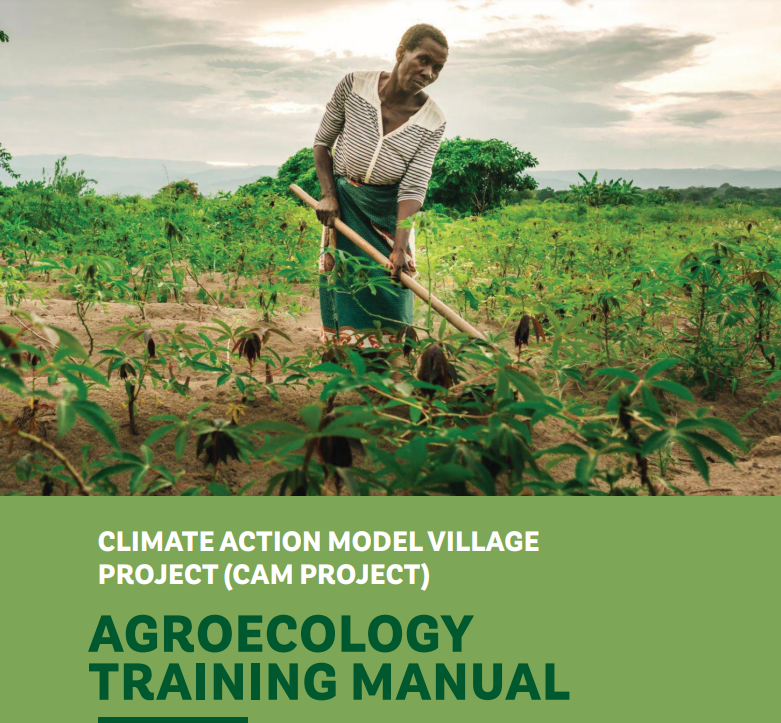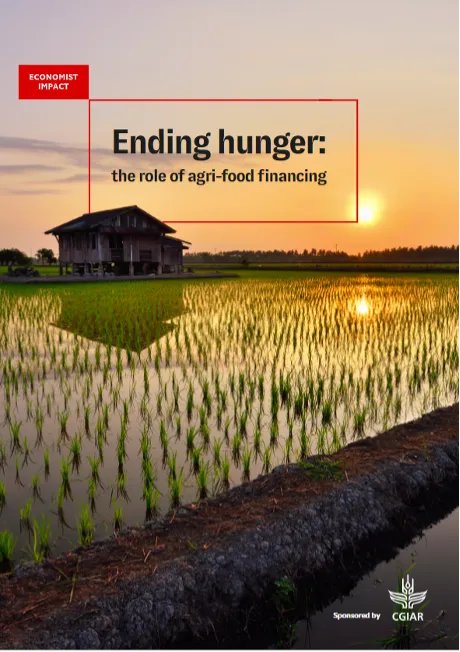- This manual is a consolidation of information from different sources on agroecology and basic production practices. It aims at imparting knowledge to those who intend to implement or facilitate/train on agroecology farming.
EC (2013) Food systems: Research and innovation investment gap study # 539 p.
FARA (2022) The AU-EU International Research Consortium (IRC) Platform Document # 44 p
FAO (2022) Bottom-up solutions to promote conservation agriculture in Cambodia # 14 p.
FAO and the Biovision Foundation (2023) Beyond the farm: Exploring the synergies between agroecology and conservation communities. # 15 p.
- This comprehensive report presents the results of a comparative study of food systems research and innovation (R&I) investment levels in the EU, considering public and private R&I spent at both national and EU level.
- PAEPARD blogpost with extracts
- The implementation of the FNSSA Roadmap is expected to be improved through a ‘Platform’ of
an alliance of stakeholders (including funders) with a long-term and sustainable governance and funding mechanism, and a knowledge management and communication system that will inform policy makers and other major FNSSA actors. - Next step: FARA will use his PAEPARD community network to communicate and disseminate IRC platform vision and objectives. (page 40)
- This policy brief presents the results of a multistakeholder policy dialogue process led by the Cambodia Conservation Agriculture and Sustainable Intensification Consortium (CASIC) with technical support from FAO's Office of Innovation (OIN) in the framework of the EU-funded TAP-AIS project.
- The Agroecology Dialogue Series is an initiative of FAO and the Biovision Foundation supporting the Coalition for food systems transformation through Agroecology (Agroecology Coalition).
- It is organized as part of the Food Policy Forum for Change.
FAO (2023) Guide on digital agricultural extension and advisory services - Use of smartphone applications by smallholder farmers # 71 p.
GFFN (2023) Climate Metrics: measuring progress and catalyzing investment in sustainable food systems # 20 p.
IFPRI (2023) Global food policy report 2023: Rethinking food crisis responses # 140 p.
IFPRI (2023) Global food policy report 2023: Rethinking food crisis responses: Synopsis # 12 p.
UNEP (2023) Driving Finance for Sustainable Food Systems: A roadmap to implementation for financial institutions and policy makers # 78 p.
- this guide, targeting smallholder farmers in need of digital agricultural extension and advisory services (AEAS) as its principal users, provides a set of tools to enhance their digital skills in terms of basic knowledge and skills on using digital tools, methods of access to digital AEAS, methods of access to e-commerce, and capacity building.
- This brief on climate metrics is the second document published by the Good Food Finance Network (GFFN) Metrics Catalyst Group. The First Metrics Brief of the GFFN Metrics Catalyst Group is available on the GFFN website.
- This brief summarizes key trends in climate-related metrics used by financial institutions working in the sustainability of food systems.

IFPRI (2023) Global food policy report 2023: Rethinking food crisis responses: Synopsis # 12 p.
- Food systems are not only susceptible to increasingly complex and compounding shocks, but are also closely intertwined with other essential systems — climate and environmental services, trade and the economy, infrastructure, governance, healthcare, and social protection.
- "Available funds can be increased by repurposing the more than $600 billion in global spending that goes to agricultural support. Some funds could be reallocated to incentivize the adoption of more sustainable, climate-smart practices and invested in agricultural research and development aimed at traditional targets such as productivity gains, as well as new targets such as improved resilience." (p.22)
- 13 April 2023. Global Food Policy Report launch
Iles de Paix, SOS-Faim and Autre Terre (2022) Faut-il intensifier l’agriculture au nom del’environnement? # 28 p.
Iles de Paix, SOS-Faim and Autre Terre (2022) Faut-il intensifier l’agriculture au nom de l’environnement? résumé exécutif FR # 4 p.
Iles de Paix, SOS-Faim and Autre Terre (2022) Should Agriculture be intensified in the name of the environment? The advantages and limitations of land sparing to feed the world and preserve biodiversity. Summary EN. # 4 p.
Iles de Paix, SOS-Faim and Autre Terre (2022) Faut-il intensifier l’agriculture au nom de l’environnement? résumé exécutif FR # 4 p.
Iles de Paix, SOS-Faim and Autre Terre (2022) Should Agriculture be intensified in the name of the environment? The advantages and limitations of land sparing to feed the world and preserve biodiversity. Summary EN. # 4 p.
- How to reconcile needs, especially food needs, with the preservation of biodiversity?
- This is where the tumultuous scientific and political debates between land sparing and land sharing arise. Is it better to produce as much as possible on a minimum surface area, even if it means using methods that are harmful to the environment, in order to leave more space for nature? Or should we adopt less intense and more respectful environmental practices, with the risk of having to farm larger land areas?
- The answer to this question, in defining what is the best way to farm, has huge implications on food sustainability trajectories, and on the policy choices that frame them.
IPES (2023) Who’s Tipping the Scales? Rebalancing power for democratic food system governance #44 p.
The Economist (2023) Ending hunger: the role of agri-food financing # 23 p.
- Corporations have unduly shaped the institutions, policies and norms that govern our food systems. From academic curricula to healthy diet initiatives to high-level advisory bodies – signs of corporate influence in food systems are now pervasive.
- As transnational food and farming companies grow ever bigger their playbook is evolving, and their ability to set the agenda is increasing. They have convinced governments they must be central in any discussion on the future of our food.
- This Open Access book compiles the findings of the Scientific Group of the United Nations Food Systems Summit 2021 and its research partners. The Scientific Group was an independent group of 28 food systems scientists from all over the world with a mandate from the Deputy Secretary-General of the United Nations.
- The chapters provide science- and research-based, state-of-the-art, solution-oriented knowledge and evidence to inform the transformation of contemporary food systems in order to achieve more sustainable, equitable and resilient systems.
- This is an Economist Impact report, sponsored by CGIAR. Drawing on its analysis of secondary data sources and interviews with experts, this report examines the role of agri-food financing in ending world hunger.
- It concludes with three broad strategies to increase the volume and impact of financing for agri-food systems, with the goal of accelerating progress towards zero hunger: (a) Scaling up targeted development funding; (b) the potential of the private sector; (c) Maximising the impact of existing investment
- This report is providing a roadmap for private financiers to drive significant capital flows towards food systems.
- The report also describes innovative new instruments and financing techniques, including blended finance, and addresses the policy changes needed to create an enabling environment.
- PAEPARD blogpost with some extracts of the report + a webinar presented key findings of the launched report
UNEP, FAO, UNDP (2023) Guide on multi-stakeholder collaboration that aims to support stakeholders working at all levels of the food system in the implementation of the National Pathways for Food Systems Transformation (WILL BE PUBLISHED MID MAY 2023)
- 5 building blocks underpin successful multi-stakeholder collaboration for food systems transformation
- The guide will offer good practices from multi-stakeholder initiatives operating in different geographical locations.












No comments:
Post a Comment